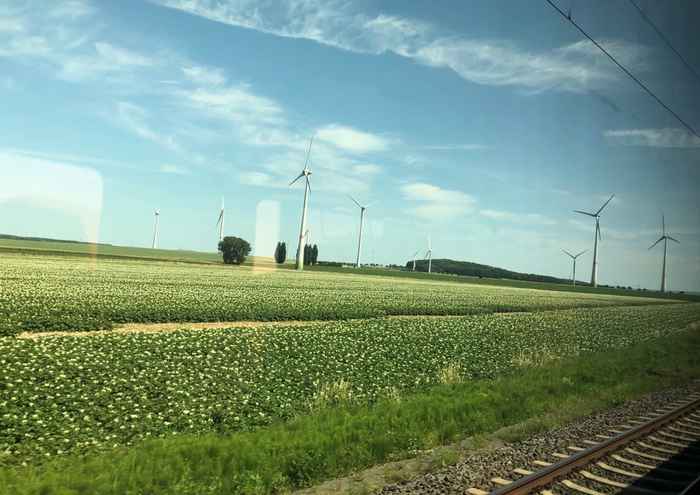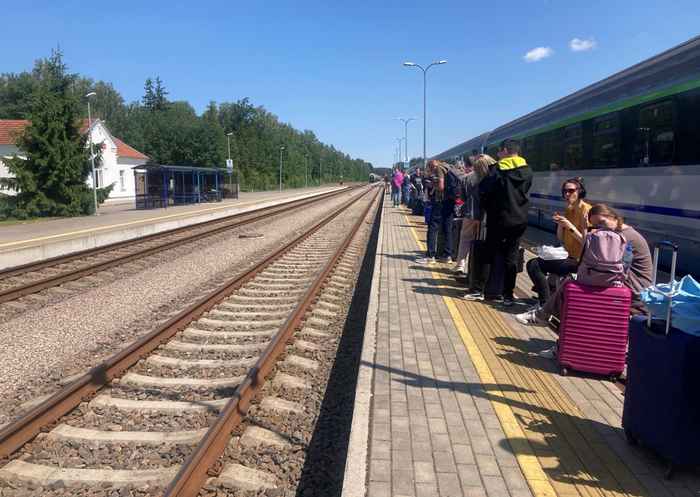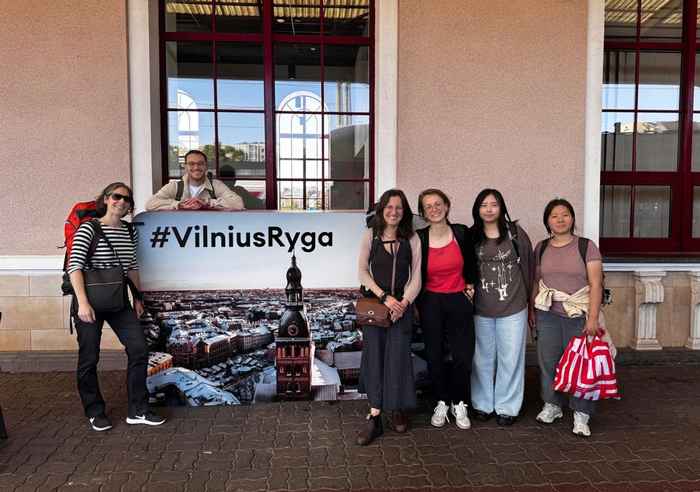AICE Researchers Do Cross-Continent Train Trip to Conference
3 July 2025
Their trip to ICEP is described below.
We travelled there together by train with a night stopover in Warsaw. Three colleagues from the Brick lab joined us for parts of the journey. The more-than-20-hour-per-direction journey was enjoyable and fun, and nearly without delays. We used the time to read, revise articles, nap, chat and connect with others, eat and observe the changing landscape. It was socially bonding to deal with delayed German trains and enjoy the breaks in the sun at various Polish train stations. By taking trains instead of flying, the five of us saved around 1.5 tons of CO2 for the round trip (the equivalent of a Paris aligned annual carbon budget per person).
And we were not the only ones who skipped the flight(s): Lorraine Whitmarsh (Professor Environmental Psychology at the University of Bath) took trains and a bus on her journey from Bristol to Vilnius and wrote about her journey (see here). During the last leg of the journey (from Warsaw to Vilnius), it became especially clear just how many of us were headed to ICEP – the journey includes a change of train at a tiny train station just across the Lithuanian border – and at least half of the passengers were on their way to the conference (as apparent by posters, conversations, familiar faces). And while most of us took only trains, others decided to do part of the journey by ferry – crossing the Baltic sea from Northern Germany to Klaipeda in Lithuania.
Our presentations included:
Linli Zhou - Repairing clothes with good feelings: How positive emotions influence sustainable clothing behaviors.
Changyu Jing - Exploring the impact of valence and self-relevance in environmental messaging: A selective approach
Maien Sachisthal - “She should do it for my future”: Climate Change Conversations of Child-Parent Dyads
Anna Sach - Becoming climate activists: A qualitative exploration of movement participation
Additionally, Maien Sachisthal facilitated and Disa Sauter was a speaker in a panel: Beyond Business-as-Usual: What is the role of environmental psychology in the face of the climate crisis?


